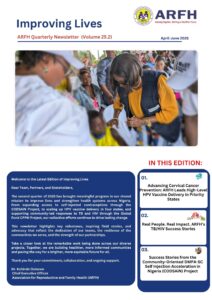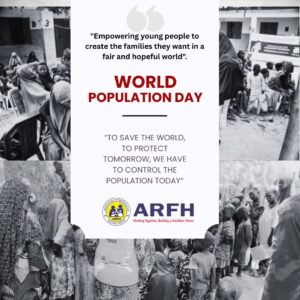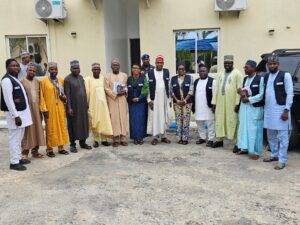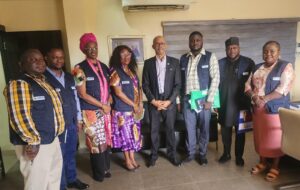The Global Fund is a funding mechanism to galvanize support for the fight against AIDS, TB and malaria. In Nigeria, the Global Fund is a major partner of the National Tuberculosis and Leprosy Control Programme (NTBLCP) in its fight against tuberculosis in 36 states plus Federal Capital Territory. The National Programme aims to reduce the TB burden, to provide increased and equitable access to DOTS services and further expand TB/HIV services as well as complementing and accelerating the on-going activities implemented by government agencies and development partners, including USAID, DFID and CIDA.
Association for Reproductive and Family Health (ARFH), an indigenous non-profit and non-governmental organization is one of the two principal recipients of the Global Fund Tuberculosis Round 9 Phase 2 grant in Nigeria. ARFH is working in collaboration with the National TB and Leprosy Control Program (NTBLCP), the ILEP partners and Health Alive Foundation towards the elimination of TB as a public health challenge in Nigeria. Community TB Care (CTBC ) is a major component of the Global Fund TB grant. An important mandate of the CTBC program in Nigeria is the creation of demand for TB services through health education, social mobilization and awareness creation via trained community volunteers and Community Based Organization (CBO). The responsibilities include ensuring effective referral of suspected TB cases in the community to appropriate health facilities in order to receive diagnosis and care.
ARFH/Global Fund-supported Community TB program in Nigeria has coverage in 24 states, 236 LGAs and 720 Communities/wards of the federation. Since its inception, Behavior Communication for Change have been undertaken to improve the level of people’s knowledge about the disease and to promote the adoption of behavior that reduce the occurrence and / or worsening of TB cases as well as mobilizing people and resources towards the elimination of TB in their respective communities through the engagement of 420 community based organizations (CBOs).
According to Dr. Queen Ogbuji, ARFH TB Project Coordinator, ARFH in collaboration with a local NGO Health Alive Foundation, has trained over 4400 Community volunteers (CV) and has built the capacities of 420 CBOs to support the control of TB in their communities. These CBOs have held field activities such as advocacy, communication, social mobilization and other community TB cares programmes. According to the NTBLCP TB Statistics for Quarter 4 of 2012, the number of suspects referred by CVs increased from 6% (in Quarter 1) to 8% (in Quarter 4), while proportion of TB cases managed through support of Treatment Supporters/CV increased from 18% to 45% between Quarter 1 and Quarter 4 of 2012.
Two years ago, 45 years old cattle rearer Umar Jalo and his nomadic ‘Bororo’ family migrated to Gaa Labaka, a nomadic settlement in Kwara State (North Central Nigeria). Umar Jalo live with his wife and two children- Adamo, a 13 years old girl and Abubakar, a boy of 7years old – both attend an Islamic School. Mr. Jalo met with Mr. Isiaka Jafojo, a trained Community Health Volunteer with Health and Social Relief Initiative, a Community Based Organization engaged in the Community TB Care (CTBC) program during one his field assignments- sensitization activities within Labaka community of Ifelodun LGA, in April 2012.
During their interaction, Mr. Umar complained that his wife and daughter had been coughing for a long time. He also explained that the cough drains their strength and affects their productivity at home and school respectively.  Mr. Isiaka immediately referred the whole family to Oke-Ode Specialist Hospital to be screened for tuberculosis. A sputum test (acid-fast bacilli microscopy) conducted at the hospital confirmed the whole family to be positive and they were immediately placed on treatment.
Mr. Isiaka immediately referred the whole family to Oke-Ode Specialist Hospital to be screened for tuberculosis. A sputum test (acid-fast bacilli microscopy) conducted at the hospital confirmed the whole family to be positive and they were immediately placed on treatment.
The families confirmed an improvement in their health after six weeks of commencement of treatment and were appreciative of the community TB care programme. Mr. Umar Jalo has since been linked to the leaders of the nomadic community for advocacy and mentoring while the TB supervisor for the LGA is ensuring his family continues with the TB treatment even after they have moved from Gaa Labaka Oja. Umar’s family situation is not unique; it is in fact a definitive illustration of the TB burden in Nigeria. Their story highlights the critical role of the community TB care initiative in improving awareness about TB and increasing access to TB services.




